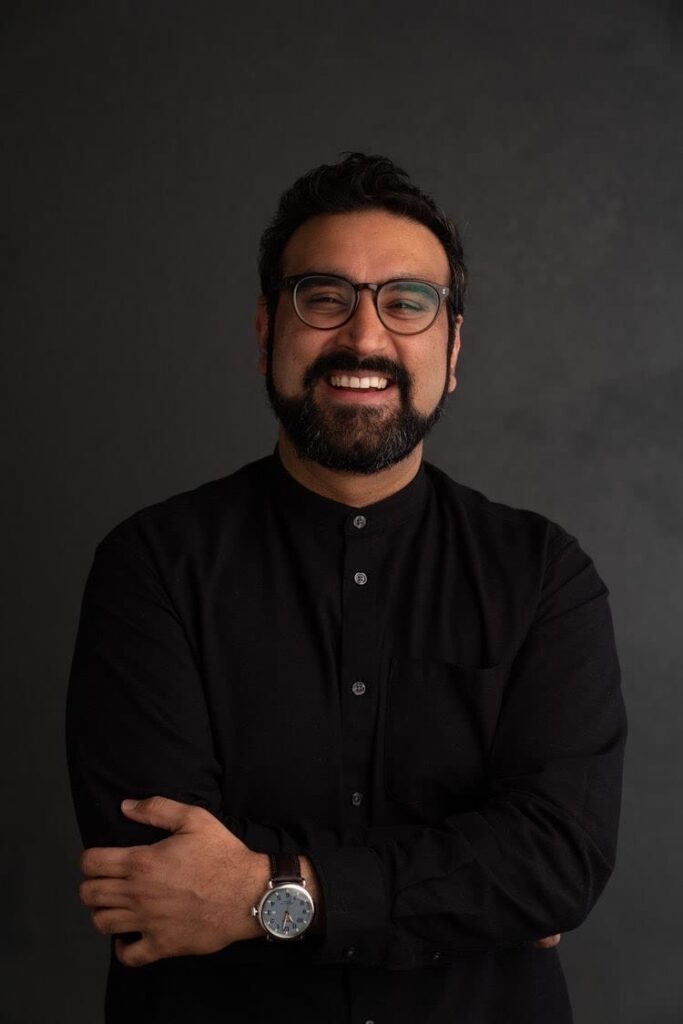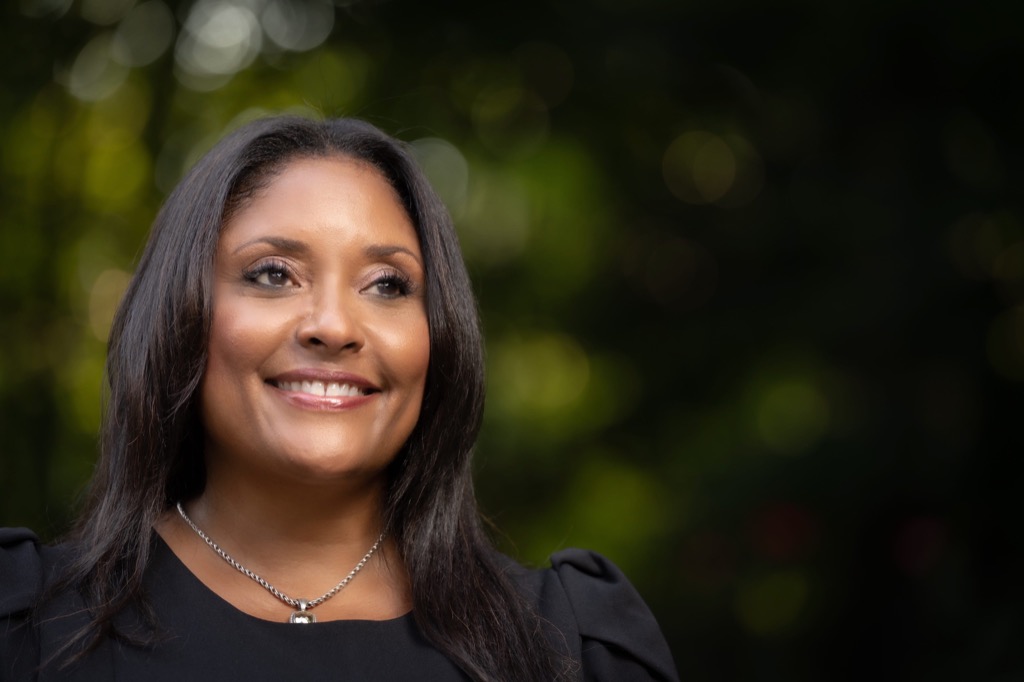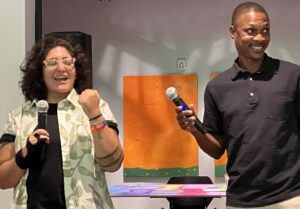By Paul Bolster
The two candidates vying to be President of the Atlanta City Council participated in a forum organized by SE Neighbors Take Action on September 27. Sixty-one people tuned in. Marci Collier Overstreet, two-term member of the council participated for the first half hour but had to drop off due to a scheduling conflict. She apologized for limiting her time and said her “schedule was out of control.” Rohit Malhotra, founder and longtime leader of the Center for Civic Innovation, was able to answer questions for an additional hour so this article will have more of his answers.

Under the Atlanta City Charter, the President of Council presides over council meetings, appoints the committees and chairs, and votes only if there is a tie. The candidates presented their vision for the job.
Overstreet emphasized the specific duties. She said she would be ready to be mayor if the current mayor was unable to serve and would vote in the case of an unlikely tie on the 15-person council. She said her experience as a member for the last eight years helped her know and understand the members and how to collaborate with them and move the city “further along in the great progress that we have been doing.” She would help the city meet its goal of adding 20,000 units of affordable housing by 2030. She pledged that going forward each affordable housing project would have a community benefit agreement. She vowed to appoint “the right council members in place to continue the progress of our great city.”
Malhotra has a more expansive view of the office. The City Charter mentions the position more than 100 times, and in his view the President of the Council has responsibility beyond the duty of the organizing and presiding over its meetings. The council president should help the city, its residents, and its neighborhoods to “imagine what public policy should look like.” He gives two examples. 1. Economic mobility is his number one priority and he would urge, neighborhood by neighborhood, to create a plan to narrow the inequality gap. 2. He is “heart heavy” about gun violence and would bring all the different jurisdictions and groups together to devise a coordinated plan of action. “This is not just a police question” and involves the coordination of a wide range of community resources, he said. “I will spend my time with communities and organizations” to set a direction.

Both responded to a question of rail on the Beltline or other transit expansion.
Malhotra said people supported the Beltline with an understanding there would be rail in its future and supported it with sales tax revenue. “The longer you wait the harder it gets. It is a matter trust.”
“I am for Beltline rail,” Overstreet said, “and want to make sure we have a comprehensive plan.” She intends it to be on all 22 miles. She said she has been a loud voice critical of MARTA’s utilization of sales tax dollars and joined with other council members asking for a regular audit of the funds the Atlanta sales tax is providing. Overstreet won a Blinkie Award for Bike-Friendly Elected Official in 2019.
Both candidates expressed concern that high value commercial property was being undervalued by the Fulton County assessors. Overstreet said she recognizes the problem and would work with other local governments to find a solution. She had spoken to both Fulton County Commissioner Chair Pitts and Commissioner Ivory about the problem. Malhotra recognized many commercial properties were undervalued and the issue has been discussed for “many years.” Nobody has taken any action. He suggested the City Attorney could appeal some of the low commercial assessments which effect the revenue of local government. The budget needs of local government should be forcing action on the issue.
In her closing comments, Overstreet made it clear she would “not be part of a Nod Squad” and sees the council as an independent legislative body for the city. She does think her experience will help her bring the members of council together for the good of the city.
Malhotra expanded on his ideas regarding economic mobility. The biggest problem he said is that people don’t have assets which enable them to participate in the economic opportunities our economy creates. He said when big events like the World Cup come to our town there should be a concerted effort to enable small businesses to participate. He likes the idea of the “Baby Bond” which puts money in an account at birth to give people a small amount of capital at the start of life. As Atlanta gets more expensive, people are going to need more income to stay here and take full advantage of the growth.
On the extension of Tax Allocation Districts (TADs) proposed by Mayor Dickens he is open to consideration but each extension needs to have a specific and clear plan for how the funds would be used within the districts. When you commit future growth of property values to the TAD fund it takes money away from the general fund which supports all the other services the city provides. Malhotra said this is an issue which must be coordinated with the Atlanta Public School System and its need to fund quality education for all of our students.
He is open to examining ways the city could expand the availability of quality day care. He thinks the city should “look at” investments that have a long-term benefit.
Homelessness: “I know there is no one solution because people have different and often complex needs. Sometimes it is just a couple of missed paychecks, and you need to treat people with an understanding of their need.”
Malhotra has a clear message that the city needs to do more planning around the issues it faces. He thinks there needs to be a more unified approach to the NPUs. The Center for Civic Innovation did a report suggesting changes in the ordinance governing the NPUs. However, they have not been implemented. NPUs need more planning staff time to do their jobs. He is disappointed that the city budget, which is a basic statement of city action, is not reviewed at any point in the NPU process. He admires the days of Mayor Jackson when the city had a department of Planning and Budget. He says effective planning cannot be separate from the budget process.
Malhota wrapped it up with these comments: “There are a lot of people who are hurting in this city who don’t have the privilege to sit on calls and come to forums… they’re just like trying to get by. I want to fight like hell for them even if that means… maybe it’s not in the role of the City Council President. To be a vocal advocate. It doesn’t explicitly state that in the charter, but how could you go into public service right now and not make that your number one charge, that you are willing to speak up for people and stand in the gaps in a time of national crisis.”
A transcript of the Forum is available on the Facebook page for the SE Atlanta Neighbors Take Action at www.facebook.com/share/g/1BGwBtbzBt.





